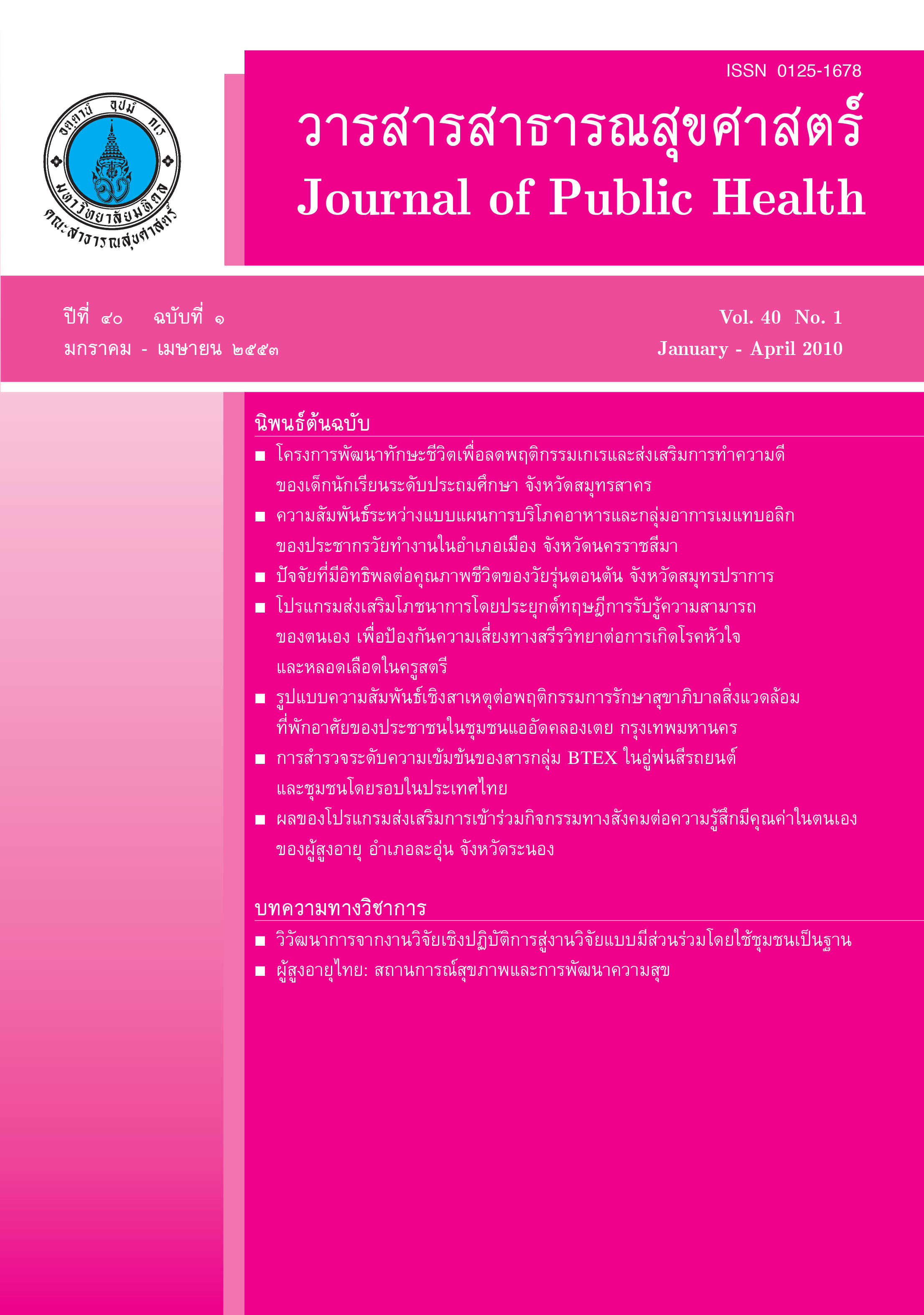โปรแกรมส่งเสริมโภชนาการโดยประยุกต์ทฤษฎีการรับรู้ความสามารถของตนเอง เพื่อป้องกันความเสี่ยงทางสรีรวิทยาต่อการเกิดโรคหัวใจและหลอดเลือดในครูสตรี
Keywords:
Nutrition promotion program, self-efficacy theory, adult women, female teachers, โปรแกรมส่งเสริมโภชนาการ, ทฤษฎีการรับรู้ความสามารถของตนเอง, หญิงวัยผู้ใหญ่, ครูสตรีAbstract
ABSTRACT
Physiological risks of cardiovascular disease (CVD) increases for women in postmenopause. The purpose of this quasi-experimental study was to evaluate the effectiveness of a nutrition promotion program applying self-efficacy theory for physiological risk prevention of CVD in the early adulthood women. The sample consisted of female teachers, aged 30-45 years. One group was selected as the experimental group, with 33 participants, and the other was selected as the comparison group, with 37 participants. The experimental period was 8 weeks, during November 2008 to January 2009. Data were collected at before and after experiment by self-administered questionnaires included knowledge on menopause, perceived self-efficacy, outcome expectation, practice for prevention of CVD, body mass index and waist circumference. Statistical analysis was performed by using mean, standard deviation, Independent-Sample-t-test and Paired t-test. Research findings revealed that the experimental group had a mean score of knowledge, perceived self-efficacy, outcome expectation and practice for prevention of CVD significantly higher than those before the experiment and significantly higher than those of the comparison group (p-value < 0.05). Results indicated that the nutrition promotion program applying self-efficacy theory helped the early adulthood women to promote a self-preparation before going through post-menopause. This program is recommended for other groups of adult women, especially in pre-menopausal women.
Key words: Nutrition promotion program, self-efficacy theory, adult women, female teachers
Downloads
Issue
Section
License
Creative Commons License CC-BY-ND


